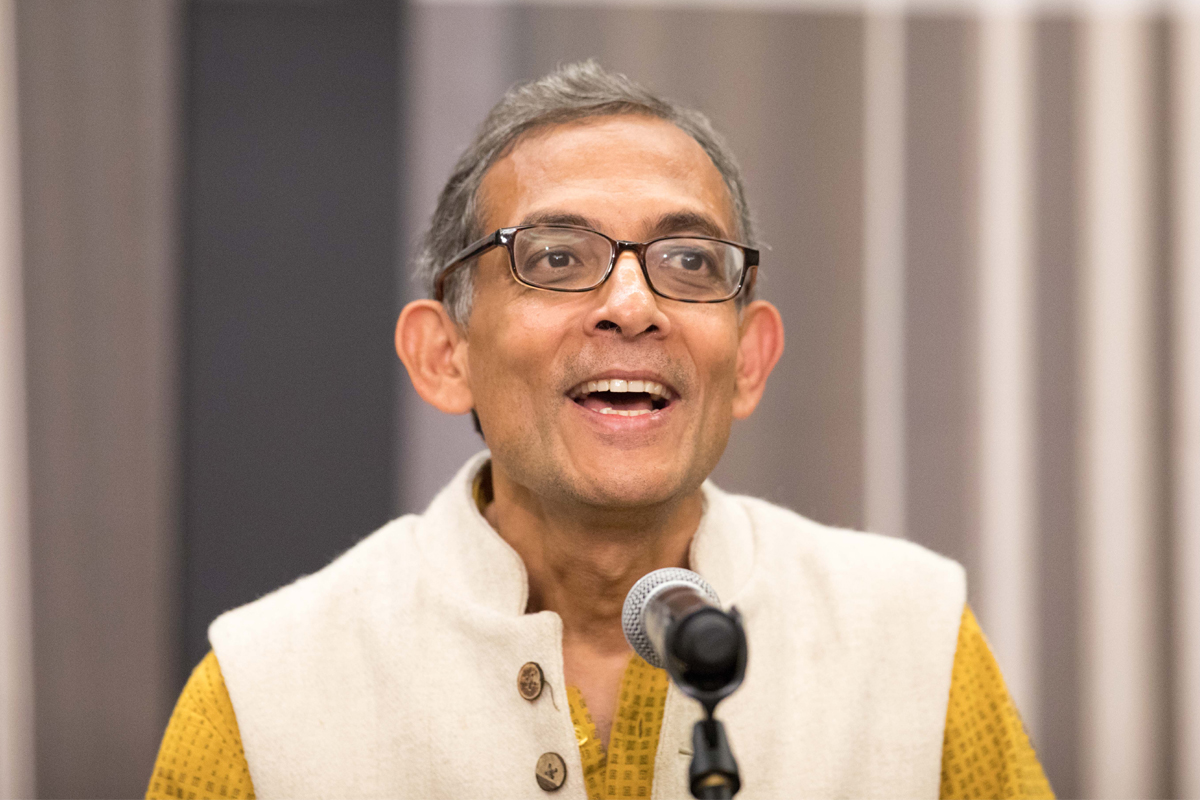Heritage bookstore in College St set to open new outlet
Dasgupta, the well-known heritage bookstore in the city, is going to open its outlet in south Kolkata on 1 May.
Important legislations are made in the Lok Sabha while the state assembly frames mere rubber stamp legislations, said Abhijit Banerjee.

(Scott Eisen / GETTY IMAGES NORTH AMERICA / AFP)
Dr Abhijit Vinayak Banerjee, the Indian American economist of Bengali origin, won the Nobel Prize for Economics today. Last year, in February he had spoken at length with The Statesman when he visited Ramkrishna Mission for Culture to deliver his lecture on ‘What is wrong with our Democracy’.
The following are the excerpts from the report that was published in The Statesman on 22 February, 2018:
“There are several factors that lead to the failure of a democracy. Some of the major sources for democratic failure are ethnocentrism, ignorance and disengagement of people or the voters. It had been observed time and again that caste plays a pivotal role in our elections. Voting is being based on ethnic identity. In this sort of election, the votes do not depend on how much development has been brought by the ruling regime and hence it also makes the competition blunt. Elections are now being fought on the pretext of identity.”
Advertisement
Pointing out the need for decentralisation, Dr Banerjee said, “Political systems have become too centralised. One must remember that no one can perform in an atmosphere of fear and intimidation. Also, everything is being run from the he Centre while the state is hardly left with any powers to decide on a vital issue. Important legislations are made in the Lok Sabha while the state assembly frames mere rubber stamp legislations.”
“The electoral incentives are too weak in the elections fought in our country. At the same time the politicians are hardly interested in what the voters need. We once carried out a survey during Delhi municipal elections where it was apparent that people wanted more drains and sewerages while the politicians are busy building roads. Politicians need to understand that it is not about how much money has been spent but where it has been spent.” Banerjee shares the 2019 Nobel in Economics with his wife Esther Duflo and Michael Kremer.
Advertisement